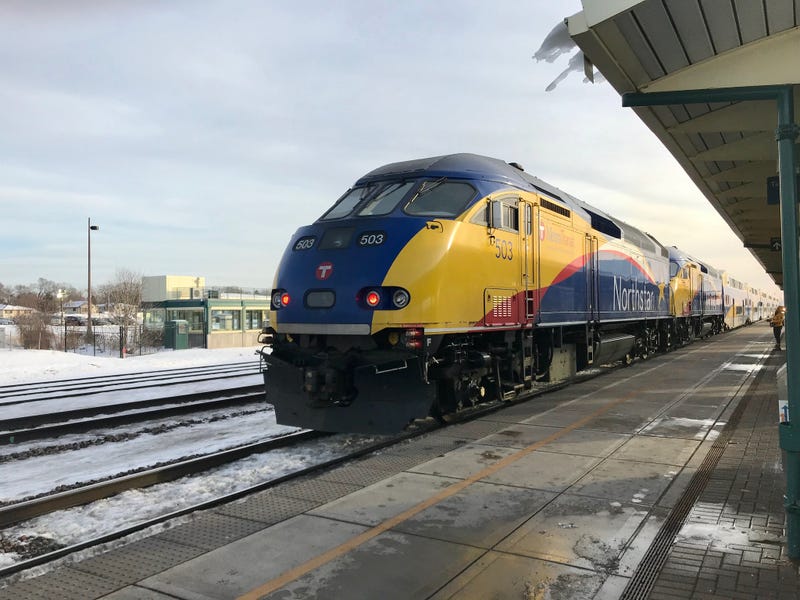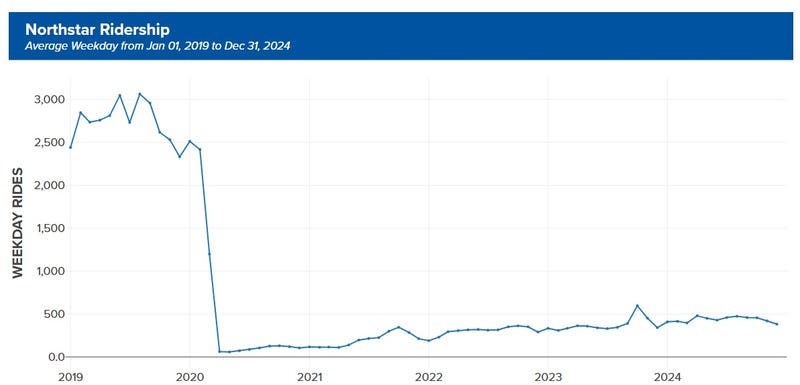
A Minnesota House committee will hear a proposal Monday that effectively begins the process of shutting down the Northstar Commuter Rail system.
The rail runs forty miles from downtown Minneapolis to Big Lake, in Sherburne County, since 2010. The route has stops at Target Field, Fridley, Coon Rapids, Anoka, Ramsey, Elk River and before it ends in Big Lake.
Transportation committee chair Jon Koznick (R- Lakeville) told KSTP-TV's Tom Hauser on the WCCO Morning News that it's been a big burden on taxpayers.
"It's never had the ridership that it has expected to, and we want to not just talk about it, but we begin the process of terminating the operations and reusing those dollars and other transit areas that people will use," says Koznick. "And that we can help relieve congestion and help people get to where they want."
The Northstar line was originally planned to extend all the way to St. Cloud - a 65 mile route - but was cut because of limited federal funding for the project. Instead, there is a bus link that runs from Big Lake to St. Cloud and Koznick says that doesn't get much use.
"Let's not be ridiculous about spending good money, that we don't necessarily have, after bad money," Koznick explains. "That would be the worst thing we could do. Extending Northstar to St. Cloud would also have a capital cost of up to almost $700 million and then increase the operating and maintenance to over $83 million a year."

Monday morning, the chair of the Metropolitan Council Chair Charlie Zelle and the Minnesota Department of Transportation Commissioner Nancy Daubenberger released the following joint statement.
"MnDOT’s recent Twin Cities – St. Cloud-Fargo/Moorhead Corridor study makes it clear we can provide more cost-effective transit service in the corridor currently being served by Northstar Commuter Rail," the statement reads. "As the world and consumer demand changes, we must be willing to be flexible and innovative to offer better service while saving dollars. We have jointly started the process to explore transitioning to bus service in this corridor. That process includes working with our federal partners and our rail partners at BNSF Railway, who we have appreciated as a critical partner. In the coming months, we will have more information, including timeline information and projected future savings. For Minnesotans who currently utilize this service, we are committed to working with you to ensure you have access to high-quality transportation in this corridor."
Ridership on the commuter line plummeted during the COVID-19 pandemic and has never come close to reaching pre-pandemic levels, which Koznick says were below expectations anyway.
By 2019, around 3,000 people used the Northstar each weekday. That number dropped to nearly nothing by early 2020 and has almost completely remained below 500 a day since according to the latest data from Metro Transit.
Those are similar numbers seen on most of the train and bus routes Metro Transit operates, but Koznick says the return on investment for the Northstar is just too much to overcome.
While this committee is likely to move the bill ending the Northstar forward, it's future beyond that gets murky. The House will need 68 votes to pass it, and following an upcoming special election in March, the House will most likely be back in a 67-67 tie meaning Koznick and Republicans will need at least one Democrat to vote for the bill.
WCCO Political Analyst Blois Olson notes that Democrats have not shown any willingness to break ranks so far.
"I think it's really hard," he told Hauser Monday morning. "I think Democrats are just so unified. Even the bill last week they brought up about transparency in the Attorney General's office, it just seems like they haven't found one or two Democrats that they can flake off of the DFL and they need 68 votes to pass it. So, I think it's going to be tough."
